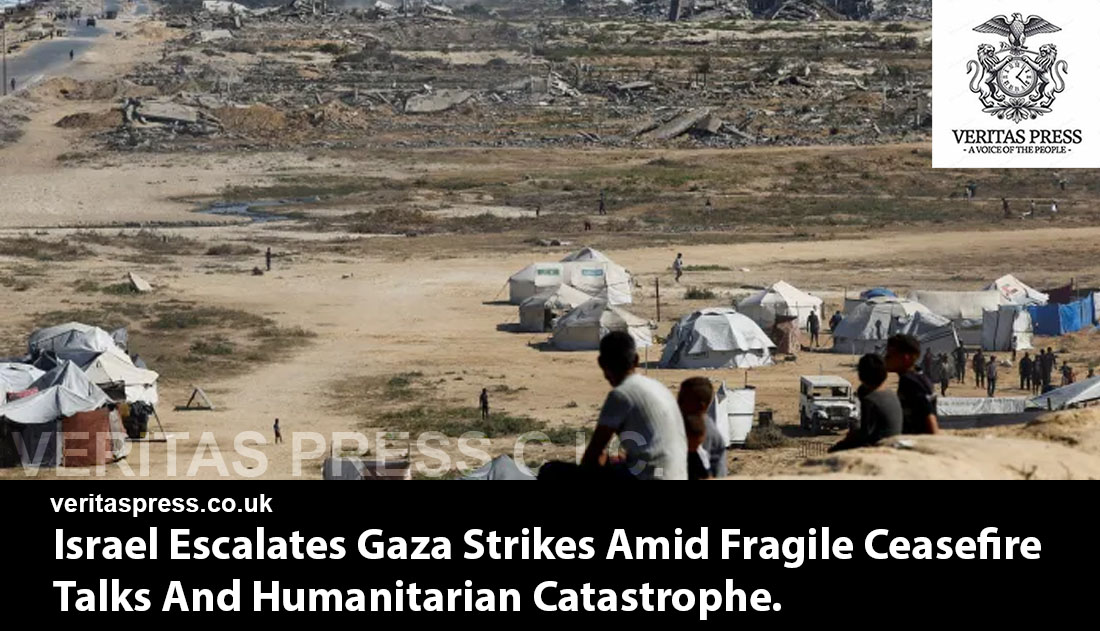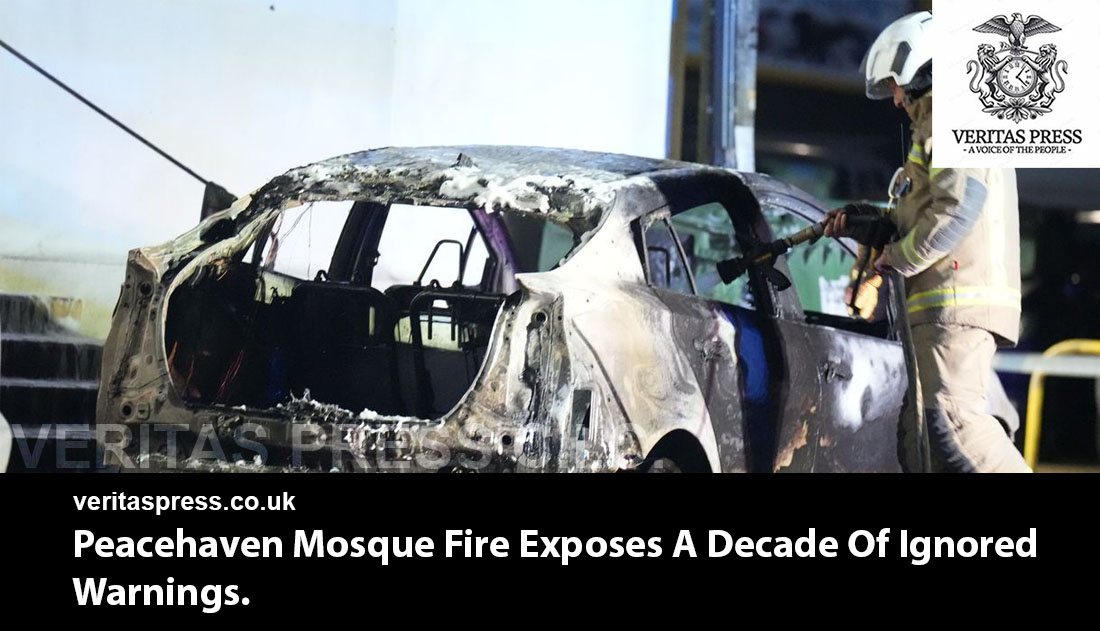Press Release: Veritas Press C.I.C.
Author: Kamran Faqir
Article Date Published: 05 Oct 2025 at 15:15 GMT
Category: Europe | Sweden | Greta Thunberg Mistreated By Israel
Source(s): Veritas Press C.I.C. | Multi News Agencies

Business Ads


The detention of Swedish climate activist Greta Thunberg and over 450 international participants of the Global Sumud Flotilla by Israeli forces has sparked widespread condemnation and raised serious concerns about human rights violations. The flotilla, comprising 42 vessels carrying humanitarian aid to Gaza, was intercepted by the Israeli military in early October 2025. Reports from released detainees and legal observers detail instances of mistreatment, including forced participation in propaganda activities, inadequate living conditions, and physical abuse.
Allegations of Forced Propaganda and Physical Abuse:
According to communications from the Swedish Foreign Ministry, Thunberg reported being detained in a bedbug-infested cell, suffering from dehydration, and receiving insufficient food and water. She also claimed to have been forced to sit on hard surfaces for extended periods. Additionally, another detainee alleged that Thunberg was compelled to hold flags while being photographed, raising concerns about the use of her image for political purposes.
Turkish activist Ersin Çelik, who was aboard the flotilla, described witnessing Israeli forces dragging Thunberg by her hair and forcing her to kiss the Israeli flag. Italian journalist Lorenzo D’Agostino corroborated these claims, stating that Thunberg was “wrapped in the Israeli flag and paraded like a trophy”
Legal and Diplomatic Responses:
The Israeli government has denied all allegations of mistreatment, with a spokesperson labelling the claims as “brazen lies” and asserting that all detainees’ legal rights were fully upheld. However, legal organisations such as Adalah have reported systematic violations, including denial of food, water, medical care, and access to legal counsel.
In response to these reports, Swedish authorities have expressed concern over the treatment of their citizens and are engaging with Israeli officials to ensure the protection of detainees’ rights. The Swedish embassy has been in contact with Israeli authorities to address individual medical needs and to advocate for the swift processing and return of detainees.
Broader Implications And International Reactions:
The interception of the Global Sumud Flotilla and the subsequent treatment of its participants have drawn criticism from various international bodies and governments. Colombia has expelled Israel’s diplomatic delegation and terminated its free trade agreement in response to the incident. Other countries, including Turkey and several European nations, have also condemned the actions of Israeli forces.
The incident has highlighted ongoing concerns about the humanitarian situation in Gaza and the broader implications of international aid efforts. Critics argue that the treatment of flotilla participants underscores the challenges faced by those attempting to provide assistance to the region and raises questions about the legality and ethics of blockades and humanitarian interventions.
Conclusion: A Crisis Of Rights, Propaganda, And Accountability.
The reported treatment of Greta Thunberg and the Global Sumud Flotilla activists exposes more than an isolated incident of mistreatment; it reveals systemic abuses in the enforcement of Israel’s blockade on Gaza. Eyewitness accounts of physical intimidation, forced propaganda, and prolonged deprivation of basic necessities indicate a deliberate strategy to humiliate and control international activists challenging the siege. Being made to pose with Israeli flags and paraded publicly, if verified, transforms a humanitarian mission into a spectacle of political coercion, blurring the line between law enforcement and psychological warfare.
This case raises profound legal and ethical questions. The denial of adequate food, water, and medical care, combined with restricted access to legal counsel, constitutes a potential violation of international human rights standards, including protections under the Fourth Geneva Convention and customary humanitarian law. The treatment of Thunberg, one of the most high-profile detainees, highlights the calculated use of international figures to project state power while dissuading future humanitarian interventions.
Moreover, the incident exposes the broader implications of Israel’s blockade on Gaza, emphasising the human cost borne not only by Palestinians but by international actors seeking to provide aid. The international community faces a dual responsibility: to hold accountable states that violate human rights and to ensure the protection of individuals engaged in legitimate humanitarian work. The accounts of abuse, corroborated by multiple detainees from diverse nations, suggest a pattern rather than an anomaly, demanding rigorous, independent investigation and immediate diplomatic scrutiny.
Ultimately, the detention and alleged mistreatment of Thunberg and her fellow activists are a stark reminder that humanitarian advocacy can be criminalised under geopolitical pressures. Beyond the headlines, this incident underscores the urgent need for international oversight, legal accountability, and the reaffirmation of norms that protect human dignity, regardless of political controversy or the identities of those involved.

























